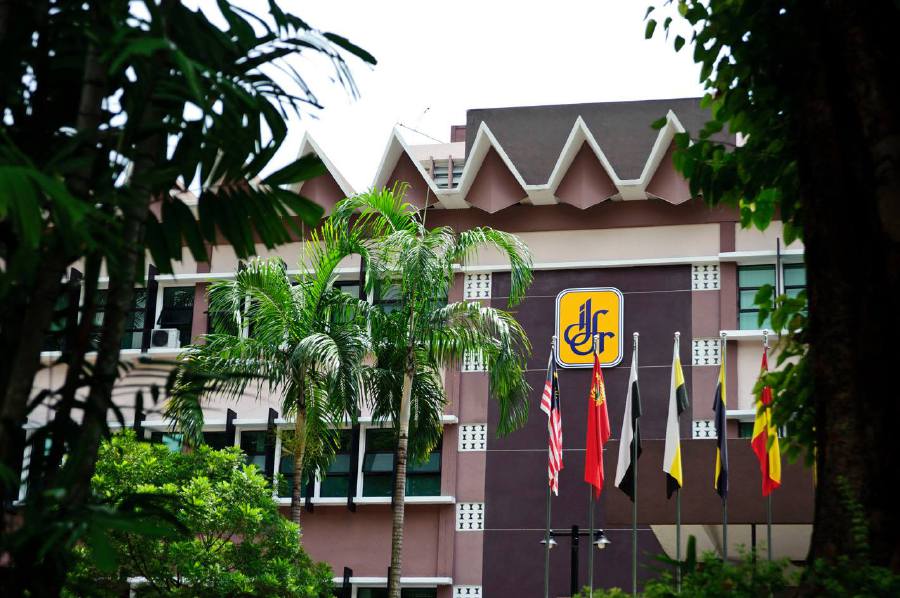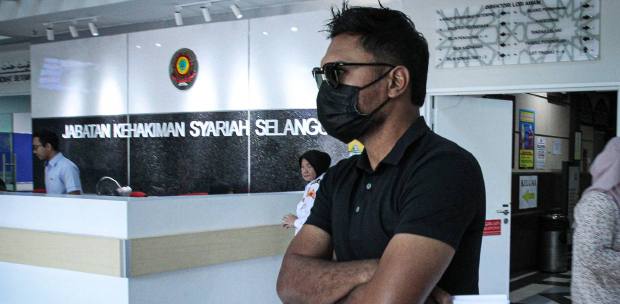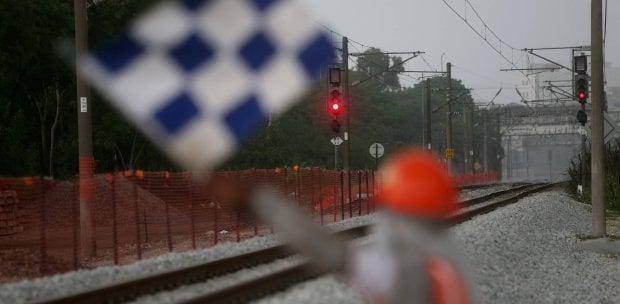For the past three decades, the Institute of Diplomacy and Foreign Relations (IDFR) has been entrusted to train Malaysia's Foreign Service officers prior to their overseas assignments.
Over the years, its training capacity has expanded to officers from home sectors, realising the fact that as the world has changed, diplomacy should not be exclusive to diplomatic practitioners alone.
This is what people have known about IDFR thus far, but few are aware that the institute also conducts research and produces publications in the field of foreign policy and international issues.
Of an ocean of publications ranging from journal, newsletter and magazine, Number One Wisma Putra (NOWP) is IDFR's signature book until today.
It is a collection of stories from our veteran top-notch diplomats coping with challenges during their posting abroad. Among the notable contributors were former foreign minister Tan Sri Syed Hamid Albar and Wisma Putra's legendary figure Tun Ghazali Shafie or 'King Ghaz'.
The effort of ensuring that the bittersweet diplomatic stories are shared does not stop there. Although a bit late, nothing is too late if we start from now.
This year, after 17 years of the success of NOWP, IDFR has come out with another two books — Diplomacy Through the Pandemic and Economic Diplomacy for Developing Asia.
Diplomacy Through the Pandemic is a unique book as it was meant to be the successor of the hot-selling NOWP. Maintaining the same structure of gathering stories from senior-ranking diplomats, the context is significantly different.
When the pandemic hit the world in 2020, our eyes were mainly directed to healthcare, military and security personnel as the "frontliners" and "national heroes". Only a few to none talked about how our diplomats abroad also carried the same critical role.
As our country's representatives abroad, our diplomats' top assignment is to protect, defend and preserve national interests at their post. In addition, they also have to ensure the safety and well-being of the Malaysian diaspora, including students, expatriates and their family members.
The pandemic affected the operations of our missions abroad due to various restrictions imposed by host countries.
It made the job of our diplomats even more difficult to reach the diaspora and facilitate their repatriation to Malaysia, on top of having to deal with their family members at home who were ringing the embassies day and night.
At the same time, they had to continue pursuing our national interests under the "new normal".
Being a diplomat is not as glamorous as many perceive. The mental and emotional strength of these diplomats are greatly tested in times of crises but they have to remain firm, calm and fast in their actions.
Diplomacy Through the Pandemic was thus born with the intention to tell the world about the difficulties faced by our Foreign Service officers in managing the pandemic at their respective missions and their responses towards the challenges. It was a great deal for them.
The Malaysian Embassy in Jakarta had to spend out of its own pocket in meeting the needs of Malaysian students; the Malaysian Embassy in Tehran almost ran out of funds to survive; and, the Malaysian Embassy in Bangkok had to renegotiate with the Thai authorities to allow repatriation by air that was almost cancelled at the eleventh hour.
These are only a few out of several breathtaking stories documented in the book.
While the majority of the home-based staff (HBS) at our missions are from Wisma Putra, there are also officers from other ministries and agencies with their own specific functions.
Therefore, the book also tells how close cooperation among these officials made the task of managing the pandemic at a mission more feasible.
Diplomacy is no longer an area exclusive to the diplomats. We realise that there is an urgency for collaboration between the state and non-state actors to strengthen our foreign policy.
These non-state actors include the non-governmental organisations, think tanks and research bodies, media and academic institutions.
In this regard, IDFR also came out with the academic-based book Economic Diplomacy for Developing Asia in collaboration with the Institute of Malaysian and International Studies (IKMAS) of Universiti Kebangsaan Malaysia.
Also revolving around the Covid-19 pandemic, the book reveals how economic diplomacy is now the nucleus of our foreign policy.
It also speaks a lot about the necessity for various players in the field of international relations to come forward and work together to amplify our efforts and ideas towards a more cooperative economic ecosystem.
As diplomacy evolves, so does our institute.
From a training body to a publishing house, IDFR aims to encourage our diplomats to start penning down their thoughts and experiences in any form of publication, be it a book, journal or a piece of op-ed article.
It will be part of their contributions to the body of knowledge in international affairs, providing reference and guidance to the future generations of diplomats.
As Canadian poet Margaret Atwood said: A word, after a word, after a word, is power.
* The writer is assistant director at the Centre for Political Studies and Economic Diplomacy, Institute of Diplomacy and Foreign Relations Malaysia
** Pix at https://www.facebook.com/IDFRMalaysia/





